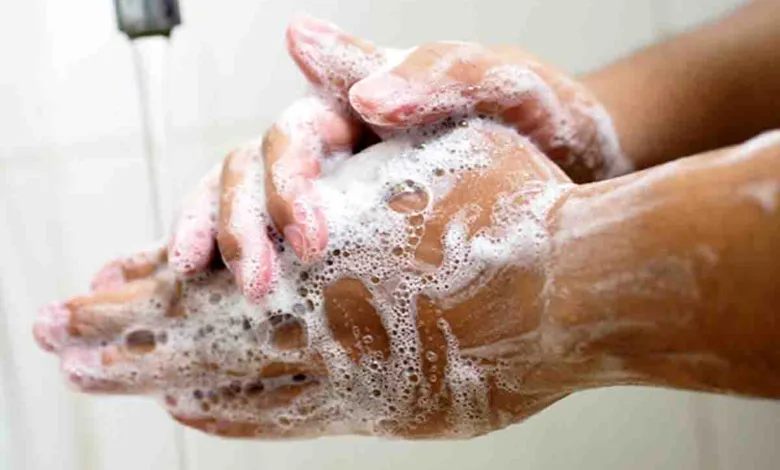Relation of cleanliness and health services in India

Monday, 26 June 2023 | Dr Gaurav Sanjay
GUEST COLUMN

Cleanliness is the most important habit one can possess, as cleanliness and health are directly interrelated. A habitually clean person can fight off and avoid many diseases, especially communicable diseases. Moreover, cleanliness enhances physical, mental and spiritual health.
If one reviews the health problems of India in the last few centuries one will find that in ancient times, infection was one of the main health problems. The epidemics of plague, cholera, smallpox, polio etc killed millions of people in the last century. In the recent decades infections like smallpox and polio have been controlled. India has been free from smallpox since 1977 and from polio since 2011. Other bacterial infections were a great cause of mortality in the past but now some of them have been controlled after the invention of antibiotics. If one reviews the cause of infection in the current scenario then it is found that individual body hygiene and cleanliness of the environment are the common factors in the spread of disease.
As far as body hygiene is concerned, it is the duty and the responsibility of an individual. However, the responsibility of cleanliness of the surrounding area is that of the entire civil society and that of the municipal administration. Regular washing of hands, brushing of teeth, bathing daily, wearing clean clothes and trimming of nails are the few basic precautions to maintain our personal hygiene. Hand washing with the soap and water should be done before consuming food and after using the toilet. It is a common observation in India that people involved in cooking and serving food at roadside eateries are not as careful in maintaining hygienic practices as they should be. In the author’s own experience, it has been seen that there are eateries where there is no provision of clean water supply and proper drainage. Food is being cooked in an open area surrounded by hundreds of flies and insects. Many eateries and restaurants are located along or around open drainage areas. Similarly, the utensils are cleaned with contaminated water and wiped with the same contaminated cloths which are used to wipe the tables. If food is consumed in such places one is bound to get a gut infection. It is suggested that such eateries should be licensed. A license should be issued only after fulfilling the norms and standard followed by the Food Safety and Standards Authority of India (FSSAI), with regular checks of hygienic practices by such vendors.
In my opinion, because of consuming unhygienic foods, the people are not only losing the money in treatment but also losing their valuable time. I would like to give an example of a person who is going for a holiday with his family. If anyone in the family gets any health issue, then it not only disturbs the physical health of that person but spoils the mood and the whole trip. It is suggested that all roadside eateries should have adequate supply of clean drinking water, clean toilet facility, safe food supply chain and facilities to maintain the personal hygiene of staff and customers. India has many seasons but particular seasons like monsoon and summer are known for fast rotting of food. It is suggested that all eateries and restaurants should have the facility of fridge and deep freezer which will not only maintain the quality of food but will avoid the wastage of cooked food and raw materials like fresh green vegetables and fresh fruits. Vegetables and fruits carry dust, pesticides, germs and unwanted residues on their surfaces. Preservative and ripening agents are commonly used so they should be thoroughly washed.
The current government under the leadership of Prime Minister Narenda Modi realised the importance of the relation of cleanliness and the health of citizens. In 2014, Prime Minister Modi initiated Swachh Bharat Mission which is a country wide campaign to eliminate open defecation and to improve solid waste management.The government aimed to achieve an Open Defecation Free (ODF) status throughout the country by constructing over 11 crore toilets all over the country. In addition to that the government also started a programme to improve the management of solid waste which will not only improve the health of the citizens but improve the health and lives of all sanitation workers. It is the largest cleanliness drive by any government in the world. This mission is working to achieve the United Nations Sustainable Development Goals. Here, I would like to inform you about the importance of hand washing. Hands carry the pathogenic organisms from one place to another, from a contaminated surface or object to the mouth. In a scientific study, it was found that if proper hand washing is done then 50 per cent of gut infection and the 25 per cent of lung infection can be reduced. Nail beds are the main harbour of these bacterial infections. Those involved in the food and beverage industry, especially the restaurants, should take care of their nails regularly.
The washing of the hands with soap and water for a minute is enough to kill most of the germs and if water is not available then one can rub hands with commercially available hand sanitizer for a half a minute. The habit of hand washing before each meal and after using the toilet should be taught to everyone in early childhood.
Even a simple bath with soap and water removes the dirt, dust, body secretions and micro organisms. Cavity in the teeth is the most common dental problem. Food particles get deposited in these cavities which become a den for these bacteria. Whenever the patient’s immunity decreases, these microorganisms settle in other parts of the body, especially if having a foreign body like implants. In orthopedic practice if patients need total joint replacement for any problem then they are advised to consult a dentist in the pre-operative checkup.
If we all, in general, practice to maintain our personal hygiene and the cleanliness in the environment, the chances of infection can be reduced significantly. On the contrary if infections occur, patients are losing not only their time and money but sometimes valuable lives as well. Our country is losing billions of rupees just on the treatment of infections. However if we all follow the simple principles of maintaining personal hygiene and a clean environment then we will save time and money which can be used for the other better work. We all should follow the dictum “prevention is better than cure”.
(The author is an orthopaedic surgeon based in Dehradun. Views expressed are personal)






